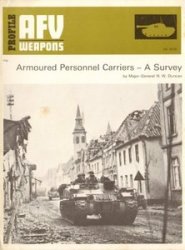Lebensborn was one of Himmler’s ideas. The Lebensborn [fountain of life] program was a duly registered organization whose goal was to infuse and increase the German nation with as much clean hereditary blood as possible. According to Himmler, this idea had to become a reality:
1) The greatest expansion of the Lebensborn program was to take place through advertisement among the circles of people who possessed the prerequisites of the goal. This was to create a wide, ideal, and material basis as large as possible for the work of Lebensborn.
In spite of all the efforts of the Party and the state to change from a nation with too few children into a nation of many children, this idea had just not taken hold in the general public. The birth rate, however, had increased noticeably after diligent propaganda and subtle pressures of the organizations of the Party. More was accomplished through financial help such as loans to families and child bonuses. But the numbers were far off the minimum demand necessary to ensure the continuation of the German people, which was that each family would have to have at least four children just to fill the great shortage that existed, and ensure every available healthy blood strain be preserved. The unwed mother, the child out of wedlock, was still despised as it always was. Against this disrespect and all the disadvantages that arose from it, all means should be employed and used to eradicate it. Thousands of children remained unborn because unmarried women were afraid of the disgrace.
2) Through very skillful covert requests to all healthy men with healthy wives, they were asked to produce as many children as possible within the marriage and outside of it. At the beginning of the war, Himmler gave notice to all SS and police members in which he demanded almost openly to reproduce with any unmarried woman who was willing to bear children because of the expected loss of blood in the coming war. A decree from the government allowed any child of a fallen soldier to take on his name if the parents were not married or even engaged. It was enough to have the written statement of the father that he would answer for the expected child.
3) Countless homes for expectant mothers and kindergartens were created.
The homes for expectant mothers were equipped with all the best; mothers could start preparing for the birth from the fifth month on. For unmarried women who expected a child from an SS or police member the stay at that home was free of any cost to her. Married women paid according to the income of their husbands, and these costs were relatively low.
After childbirth and after they had fully recuperated, the unmarried women could give their children to the kindergarten and go back to their jobs.
They could visit their children at any time, and if they so desired, take the children with them to live. Room and board for the children in the kindergarten was calculated according to their mother’s fmancial means.
They also had the choice of giving the child to childless families for them to raise or to adopt outright. By the time the war started there were already six such homes.
By building a great number of these homes, the material aspect of the problem was to be solved.
The means for them were to come from a widespread membership circle, from contributions from the business firms of the SS, and finally from donations and stipends.
Thus, for example, every SS officer was obligated to be a member of Lebensbom. His membership dues were figured according to his income and, if married, according to the number of children for which he was fmanciaUy responsible. Officers active in the Waffen SS and those in high positions had their dues deducted from their pay. SS families who had no children, and who after medical examination found they could not have children, were called upon by Himmler to accept one or more children from the Lebensbom, depending on their fmancial situation, and either raise them or adopt them. SS officers over thirty who weren’t married yet received a demand from Himmler to marry within a certain time limit, usually one year. If they didn’t comply they lost any further chance for promotion. They were put on ice.
Himmler reserved the decision to make any promotion from SS Major on up. Family circumstances and the number of children often were the things that decided in their favor with him.
According to Himmler’s wish, SS families were to be the model and example for other German families in the creation of large families. Every healthy SS family was supposed to have at least five children.
Large, healthy families were helped in every way by Himmler, whether it was through stipends or generous gifts or tuition for schools.
Furthermore, he promoted extramarital procreation of children, especially by the members of the Waffen SS units. By using “whisper propaganda” in these units the “will to have children” was to be awakened. The SS was to have the task of breaking the moral ban on unwed mothers.
The newspaper of the SS, Black Corps, discussed this theme in long articles clearly and unequivocally long before the war, and, despite press censorship, created fights about its views.
Friendly foreign countries published cartoons and commented: “Himmler wants breeding establishments for Nordic men—the German woman is to be only a birth machine,” etc.
Despite the many attacks, particularly from the churches, which tried to show contempt toward Lebensbom, Himmler’s goal, slowly but surely, took on substance.




 World History
World History









